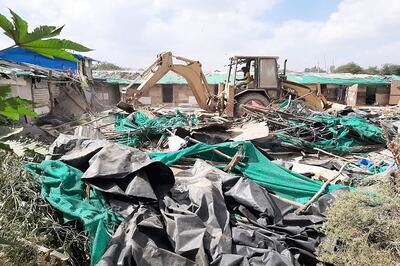
views
At 26, Senthil Kumaran* was your average delivery guy, working out of Tiruvannamalai for a courier firm. Regarded as a slow but effective worker, it neither struck his supervisor nor his family as odd that the man could not walk beyond 100 metres before complaining of fatigue and a ‘rush’ to the head. However, when he was on his bike dropping off a minimal number of parcels and letters every day, all was well.
Three years ago, on a hot April morning, Senthil was dropping off a letter for which he needed to walk up the girivalam path, when he fainted and fell down. Only after trying to revive him for about half-an-hour was he taken to a small nursing home, where they found that he had gone into cardiac arrest. He was declared dead under extremely mysterious circumstances and it caused a mild panic in his village – they claimed it was medical negligence. Eventually an autopsy was conducted and pathologists immediately found what killed him – a large hole in the wall of his heart’s atrium that had remained hidden since birth. An uncommon but easily fixable congenital heart defect, there are thousands more like Senthil living amongst us who have no idea that they their hearts are on a short fuse, and counting down fast.
“Conservative estimates tell us that about 2,20,000 children with heart defects are born in India every year,” explains Dr Sandeep Attawar, director of cardiac surgery, Minimal Access and Transplantation at Global Health City. “Now compare that with the fact that every year, only about 60,000 heart surgeries are performed in the country and you’ll know how many children are growing up with undetected heart ailments,” he adds. The numbers get even scarier – by his estimate, only 10,000 of the heart surgeries conducted in India are done on children, which is a paltry 4.5%.
Even as the city is still concluding festivities surrounding World Heart Day 2012, the clinching irony here is that paediatric cardiologists firmly believe that most congenital defects of the heart are easily fixable by surgery – if detected in the neo-natal stage or even right after birth. Take for instance the case of Immanuel, a 10-day-old baby from Puducherry, who was brought to Fortis Malar Hospital in a critical condition. He required an arterial switch operation as the two arteries were wrongly connected to opposite sides of the heart. This condition required immediate care, without which the baby has no life expectancy whatsoever. Doctors conducted the corrective surgery, reattaching the arteries to the correct sides, and the operation was a success.
Detecting a congenital heart defect is where the problem lies. With little protocol for foetal monitoring beyond an ordinary ultrasound, it is not difficult to imagine why the bulk of ‘born dead’ children and neonatal deaths (within 28 days) happens outside India’s cities.
“It is easy to give up on small babies and to consider them expendable as they cannot speak for themselves or fight to live. Parents sometimes don’t realise that with corrective surgery they can have a normal life,” asserts Dr Balakrishnan.
This is an opinion Dr Attawar endorses. “I have noticed that in the states where education levels are low, parents tend to opt out of pursuing surgery to save their children, as they feel that they can always have another instead of spending what little money they have.” Both cardiac experts feel that a foetal echo (ECG while the child is in the womb) should be made mandatory to give the child its first heart exam.
Indian surgeons have a great track record with surgeries in cities. “The success rate of cardiac surgery hovers around 98 to 99%, showing that high quality intensive care ensures that the results are good,” he adds.
As the celebrations on World Heart Day (September 29) get larger with people focusing on eating right and getting heart check-ups over 40, perhaps we would do better by catching them younger so that the future has better hearts. As Dr Balakrishnan puts it, “We talk of GDP and growth rate, but all that means nothing. We are not an emerging superpower as long as we have these sort of figures (for congenital heart disease) and cannot ensure a future for our children.”




















Comments
0 comment